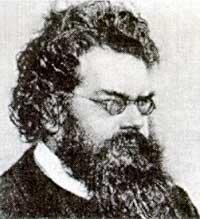According to the laws of physics, bacterial replication can be more effective
2012/10/02 Etxebeste Aduriz, Egoitz - Elhuyar Zientzia Iturria: Elhuyar aldizkaria
.jpg)
The organization or arrangement of atoms and molecules in a certain way is fundamental to life. And this goes against the second law of thermodynamics, since entropy decreases. However, living beings compensate it by increasing the entropy of the medium releasing heat. The same occurs in the reproduction of bacteria. The formation of two bacteria is also an ordination exercise. A team of researchers from the Massachusetts Institute of Technology has calculated the minimum amount of heat that should be released to order the components of a new bacterium, taking as model E. coli. And they conclude that this amount of heat is a third of the released bacteria E. coli when replicated.
Thus, to achieve maximum theoretical efficacy, bacteria should be twice as effective. According to the researchers, this is not likely in nature because the bacteria must adapt to different conditions and, therefore, they cannot optimise it only for specific conditions. However, in the field of biotechnology, there may be an opportunity to increase its effectiveness by transforming bacteria, creating bacteria that multiply twice faster.

Gai honi buruzko eduki gehiago
Elhuyarrek garatutako teknologia





